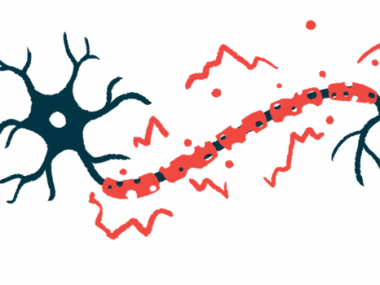I Am Not My Disability
Written by |

During the Fearless Mom 2022 conference in February, I learned about an interesting phenomenon from keynote speaker, clinical psychologist, and consultant Dr. Robi Sonderegger.
According to Sonderegger, the English language is one of the few languages in which we describe our feelings or our pathology as a state of being. For instance, we’ll say, “I am sad,” “I am hot,” or “I am ADHD.” In other languages, one might say that they “have sad,” “have hot,” or “have ADHD.”
Sonderegger went on to discuss how most feelings are temporary, a fleeting state of being. But adopting them as our identities as we’re experiencing them can be destructive.
Now, I realize that conditions like depression, attention-deficit/hyperactivity disorder, and alcoholism are not fleeting, and I am not belittling the effect they can have on your life. However, you also don’t have to wear them as a label.
For example, I have Friedreich’s ataxia (FA), which has rendered me disabled. I am unable to walk unassisted, among other issues. Because of this, it is tempting to label myself as disabled and claim that as my identity, especially since FA is not something fleeting, like a feeling. It’s tempting to live under that banner because my disability plays such a dominating role in my life. It’s so tempting, in fact, that I’ve often done just that.
However, I don’t think that mindset is healthy. If I only think about how I’m disabled, I am discrediting everything I can still do and everything else that makes me who I am, apart from FA. I am focusing on the biggest negative in my life instead of giving anything positive the chance to control my narrative.
I wouldn’t say that I am FA, I would say that I have FA. So why should I take on FA as a label, any more than I would label myself as the cause of my disabilities? I have FA, which has brought disability into my life, but I am not FA. I have disabilities, but I am no longer labeling myself as disabled.
Instead of saying that I am disabled, I will try to adjust my phrasing and, hopefully, my mindset so that I am not limited to operating within the confines of that label and all its implications. I will try to say that I have a disability instead of reducing my existence to only being disabled.
I think people would look at me strangely if I said things like “I have happy” or “I have tired,” but I’ll still try to be mindful of my declarative statements by saying “I feel happy” or “I feel tired” instead. Hopefully, this small change will allow me to take a step back from my feelings and view them with a different perspective that doesn’t give them complete control.
I have a disability. I have a husband. I have children. I have friends. I have faith. I feel sadness, hardships, disappointments, and frustrations. I feel joy, fulfillment, laughter, love, and purpose. I have a full life, and FA is only part of it. I have a disability, but I am so much more than that.
Note: Friedreich’s Ataxia News is strictly a news and information website about the disease. It does not provide medical advice, diagnosis, or treatment. This content is not intended to be a substitute for professional medical advice, diagnosis, or treatment. Always seek the advice of your physician or another qualified health provider with any questions you may have regarding a medical condition. Never disregard professional medical advice or delay in seeking it because of something you have read on this website. The opinions expressed in this column are not those of Friedreich’s Ataxia News or its parent company, Bionews, and are intended to spark discussion about issues pertaining to Friedreich’s ataxia.







Leave a comment
Fill in the required fields to post. Your email address will not be published.